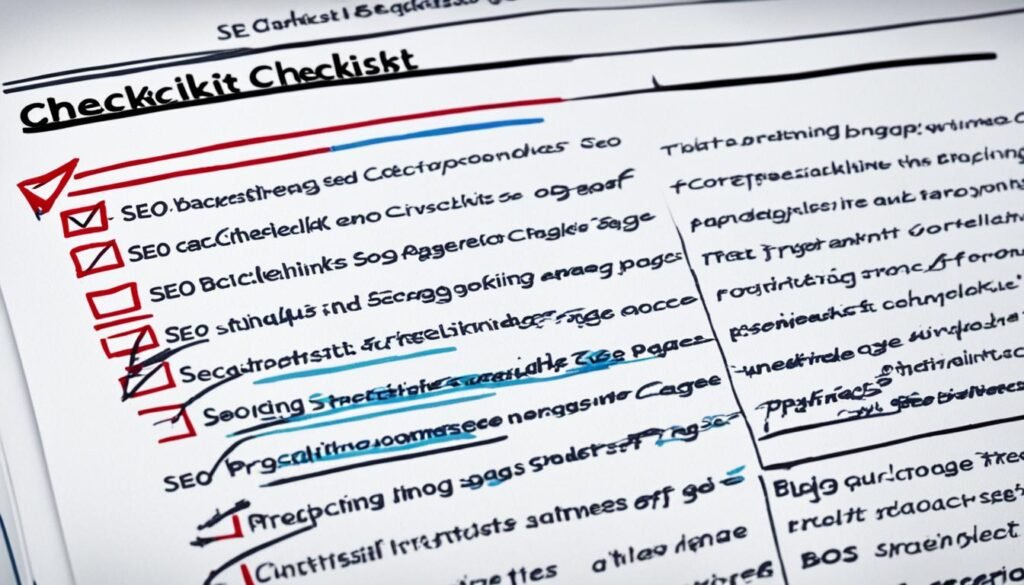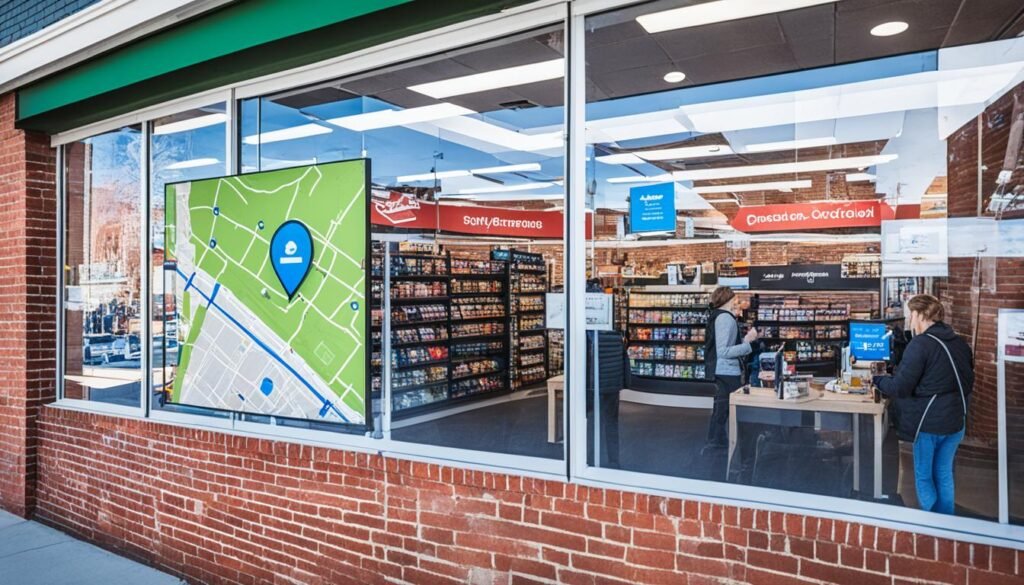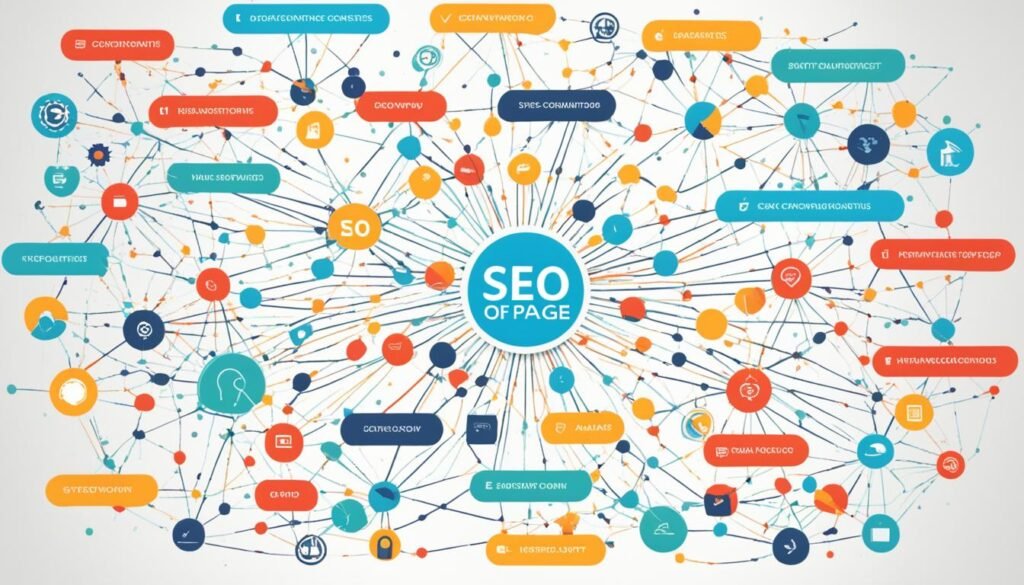Off-page SEO, also known as off-site SEO or off-page optimization, refers to the actions taken outside of your own website to improve your website’s search engine rankings, visibility, and reputation. While on-page SEO focuses on optimizing elements within your website, off-page SEO involves strategies like link building, social media marketing, and brand promotion to enhance your website’s authority and credibility.
One of the key techniques in off-page SEO is building high-quality backlinks from other reputable websites. These backlinks act as votes of confidence, signaling to search engines that your website is trustworthy and relevant. The more quality backlinks you have, the more likely search engines are to consider your website important, resulting in higher rankings in search results.
In addition to backlinks, off-page SEO also involves leveraging social media platforms to promote your content and engage with your audience. By creating a strong social media presence, you can increase brand visibility, attract more visitors to your website, and build a loyal following.
Off-page SEO is crucial because it helps search engines and users perceive your website as a credible and authoritative source. When search engines see that other websites are linking to yours and users are engaging with your content on social media, they view your website as valuable and relevant, boosting your search engine rankings and increasing your website’s visibility.
Key Takeaways: Off Page SEO
- Off-page SEO involves strategies outside of your website to improve rankings and visibility.
- Link building is a crucial aspect of off-page SEO, focusing on acquiring high-quality backlinks from reputable websites.
- Social media marketing plays a significant role in off-page SEO, helping to promote your content and engage with your audience.
- Off-page SEO is essential for establishing your website’s credibility and authority in the eyes of search engines and users.
- By implementing effective off-page SEO techniques, you can boost your website’s reputation, search engine rankings, and overall visibility.
Why is Off-Page SEO Important?
Off-page SEO is a crucial aspect of optimizing your website for search engines. It plays a significant role in enhancing your website’s reputation, search engine rankings, backlinks, and overall visibility. By implementing effective off-page SEO strategies, you can attract more visitors, improve your website’s credibility, and increase your online presence.
One of the key reasons why off-page SEO is important is that it helps build your website’s reputation and authority. When other reputable and relevant websites link back to your site through backlinks, search engines interpret this as a vote of confidence. These backlinks act as a signal to search engines that your website is trustworthy, relevant, and valuable, thereby boosting your website’s search engine rankings.
Additionally, off-page SEO enhances your website’s visibility in search results. When your website is linked to by other authoritative websites, it increases the likelihood of your website being discovered by search engine crawlers. This increased visibility can lead to higher organic search rankings and drive more targeted traffic to your website.
“Off-page SEO is like a network of roads that lead back to your website, guiding search engines and users towards your valuable content.”
Furthermore, off-page SEO helps in creating a strong web presence for your website. By building backlinks and engaging in social media marketing, you can reach a wider audience and increase brand awareness. This increased exposure can lead to more opportunities for your website to be shared, mentioned, and linked to by other websites and users, further enhancing your off-page SEO efforts.
The Role of Backlinks in Off-Page SEO
Among the various components of off-page SEO, backlinks are of utmost importance. Backlinks serve as endorsements for your website, indicating to search engines that your content is valuable and credible. Therefore, acquiring high-quality backlinks from reputable sources is essential for improving your off-page SEO.
A backlink profile that consists of relevant, authoritative, and diverse sources helps establish your website’s reputation and authority. Search engines consider both the quantity and quality of backlinks when determining the credibility of a website. Therefore, it is crucial to focus on acquiring natural and organic backlinks from reputable websites in your industry.
While backlinks are vital, it is equally important to ensure that these backlinks come from websites that are relevant to your industry or niche. Relevance is a key factor in search engines’ evaluation of backlinks. Backlinks from websites that are unrelated or low-quality can have a detrimental effect on your website’s reputation and search engine rankings.
It is important to note that off-page SEO is a continuous process. Building a strong off-page SEO strategy requires consistent effort, monitoring, and adaptability to align with changing search engine algorithms and industry trends. By focusing on off-page SEO alongside on-page SEO and technical SEO, you can create a comprehensive SEO strategy that maximizes your website’s visibility, reputation, and search engine rankings.
| Benefits of Off-Page SEO | Key Factors |
|---|---|
| Improved website reputation and authority | Building high-quality backlinks from relevant and reputable websites |
| Enhanced search engine rankings | Acquiring natural and organic backlinks that signal credibility |
| Increased website visibility | Getting mentioned and linked to by authoritative sources |
| Expanded web presence and brand awareness | Engaging in social media marketing and content promotion |
On-Page SEO vs. Off-Page SEO

When it comes to optimizing your website for search engines, there are two main components to consider: on-page SEO and off-page SEO. While both play important roles in improving search visibility and rankings, they focus on different aspects of website optimization.
On-page SEO involves optimizing elements within your website to make it more search engine-friendly. This includes optimizing your content, using relevant keywords, creating high-quality meta tags, and improving the overall user experience. On-page SEO helps search engines understand the context and relevance of your website, thereby boosting its visibility in search results.
Off-page SEO, on the other hand, focuses on activities outside of your website that can enhance its reputation and authority. This includes building high-quality backlinks from reputable websites, engaging in social media marketing, and promoting your brand across various online platforms. Off-page SEO signals to search engines that your website is trusted and relevant, thereby improving its search engine rankings.
In addition to on-page and off-page SEO, there is also technical SEO to consider. Technical SEO involves making technical improvements to your website, such as optimizing page load speed, ensuring mobile-friendliness, and implementing structured data markup. These technical enhancements enhance the overall user experience and make it easier for search engines to crawl and index your site.
While on-page SEO, off-page SEO, and technical SEO are distinct components, they are all essential for a comprehensive SEO strategy. By optimizing your website’s content, improving its reputation through off-page activities, and making technical improvements, you can increase your website’s search visibility, improve its rankings, and drive more organic traffic.
| On-Page SEO | Off-Page SEO | Technical SEO |
|---|---|---|
| Optimizing content and HTML tags | Building high-quality backlinks | Improving page load speed |
| Using relevant keywords | Engaging in social media marketing | Ensuring mobile-friendliness |
| Creating high-quality meta tags | Promoting your brand online | Implementing structured data markup |
| Improving user experience |
While on-page SEO focuses on optimizing elements within your website, off-page SEO involves external activities to improve your website’s reputation and authority. Both on-page and off-page SEO are crucial for a comprehensive SEO strategy, along with technical SEO.
5 Off-Page SEO Techniques That Work

Implementing effective off-page SEO techniques is essential for boosting your website’s authority and increasing organic search traffic. Here are five proven techniques that can enhance your off-page SEO strategy:
-
Link Building
Link building is a crucial off-page SEO technique that involves acquiring backlinks from reputable websites. High-quality backlinks can improve your website’s search engine rankings and increase its visibility. Focus on building natural and relevant links that are valuable to both users and search engines.
-
Broken Link Building
Broken link building is a technique where you identify broken links on other websites and reach out to the website owners to suggest replacing them with a relevant link to your site. This not only helps you obtain new backlinks but also benefits the website owner by fixing their broken links.
-
Unlinked Brand Mentions
Monitor online mentions of your brand that don’t include a link back to your website. Reach out to the authors or website owners and kindly ask them if they could add a link to your site. This technique can help you turn unlinked brand mentions into valuable backlinks, enhancing your online visibility and authority.
-
Guest Posting
Guest posting involves creating and publishing content on other relevant websites in your industry or niche. It allows you to showcase your expertise, reach a wider audience, and obtain valuable backlinks to your site. When guest posting, ensure that the content is informative, high-quality, and relevant to the target audience.
-
Content Marketing and Influencer Marketing
Content marketing involves creating and promoting valuable content, such as blog posts, articles, infographics, and videos, to attract and engage your target audience. Influencer marketing involves collaborating with influential individuals in your industry to amplify your brand’s reach and impact. Both content marketing and influencer marketing can help you gain exposure, acquire backlinks, and drive organic traffic to your website.
Implementing these off-page SEO techniques alongside your on-page and technical SEO efforts can significantly improve your website’s authority, search engine rankings, and overall online presence.
By leveraging link building, broken link building, unlinked brand mentions, guest posting, and content and influencer marketing, you can strengthen your off-page SEO strategy and drive sustainable growth for your website.
Off-Page SEO Checklist

When it comes to off-page SEO, having a comprehensive checklist can help you ensure that you are covering all the important aspects of your strategy. Consider the following checklist to maximize the impact of your off-page SEO efforts:
1. Link Building
Build high-quality backlinks from reputable websites that are relevant to your industry or niche. Focus on acquiring natural and diverse backlinks to improve your website’s authority and search engine rankings.
2. Social Media Marketing
Utilize social media platforms to promote your content and engage with your target audience. Build a strong social media presence and encourage social sharing of your website’s content to increase visibility and drive traffic.
3. Content Marketing
Create valuable and shareable content that resonates with your target audience. Develop a content marketing strategy that includes guest posting on authoritative websites, contributing to industry publications, and collaborating with influencers.
4. Influencer Outreach
Identify relevant influencers in your industry and collaborate with them to promote your brand and content. Strategic partnerships with influencers can help expand your reach and attract new audiences.
5. Online Reputation Management
Maintain a positive online reputation by monitoring and responding to customer reviews and comments. Always strive to provide quality products or services and address any negative feedback promptly and professionally.
Implementing these off-page SEO tactics can significantly enhance your website’s visibility, authority, and search engine rankings. Remember to consistently monitor and optimize your off-page SEO efforts to stay ahead of the competition.
| Off-Page SEO Checklist |
|---|
| 1. Link Building |
| 2. Social Media Marketing |
| 3. Content Marketing |
| 4. Influencer Outreach |
| 5. Online Reputation Management |
Off-Page SEO Tactics for Local SEO

For local businesses, off-page SEO plays a crucial role in improving local search visibility. By implementing specific off-page SEO tactics, you can increase your chances of attracting local customers and boosting your online presence.
One important tactic is optimizing your Google Business profile. Ensure that your profile is complete and accurate, including your business name, address, phone number, and operating hours. Encourage satisfied customers to leave reviews on your Google Business listing, as positive reviews can enhance your local search rankings.
Another effective strategy is directory submission. Submitting your business information to local directories and review websites can help increase your online visibility and attract local customers. Make sure to choose reputable directories that are relevant to your industry.
“Off-page SEO tactics for local SEO include optimizing your Google Business profile, directory submission, and online reputation management.”
Managing your online reputation is also crucial for local businesses. Encourage customers to leave reviews on platforms such as Google, Yelp, and Facebook. Respond to both positive and negative reviews in a professional and timely manner, as this demonstrates your commitment to customer satisfaction.
| Off-Page SEO Tactics for Local SEO | Benefits |
|---|---|
| Optimizing Google Business profile | Improved local search rankings Enhanced online visibility |
| Directory submission | Increase online visibility Attract local customers |
| Online reputation management | Build trust and credibility Demonstrate commitment to customer satisfaction |
By combining these tactics with other local SEO strategies, such as local keyword optimization and local link building, you can enhance your website’s visibility in local search results and attract more local customers to your business.
Off-Page SEO Strategies for Ecommerce Websites

Ecommerce websites can greatly benefit from implementing effective off-page SEO strategies. These strategies are focused on increasing brand visibility and driving traffic to your ecommerce site through various channels. Let’s explore some essential off-page SEO techniques that can help you optimize your ecommerce website and boost its online presence.
1. Product Promotions:
Utilize social media platforms, such as Instagram, Facebook, and Twitter, to promote your products. Create engaging and visually appealing content that showcases your products’ unique features and benefits. Encourage user engagement by running contests, giveaways, and limited-time offers to attract potential customers.
2. Influencer Collaborations:
Partner with influential individuals in your niche to promote your products and reach a wider audience. Collaborate with influencers who have a significant following and align with your brand values. They can create authentic and compelling content that highlights your products, increasing brand credibility and driving traffic to your ecommerce website.
3. User-Generated Content:
Encourage your customers to create and share content related to your products. This can include product reviews, testimonials, and user-generated videos or images. User-generated content not only adds authenticity to your brand but also serves as valuable social proof, influencing potential customers to make a purchase.
4. Customer Reviews and Ratings:
Display customer reviews and ratings prominently on your ecommerce website. Positive reviews and high ratings help build trust and credibility among potential customers. Encourage satisfied customers to leave feedback and incentivize them with discounts or loyalty rewards. Responding to both positive and negative reviews shows that you value customer feedback and are committed to providing excellent service.
Off-Page SEO Tips for Brand Promotion
To promote your brand effectively and enhance its online presence, you need to incorporate off-page SEO techniques. These strategies focus on creating brand awareness, improving your reputation, and increasing engagement with your target audience. Implement the following tips to boost your brand promotion:
1. Leverage Social Media Marketing
Social media platforms play a crucial role in brand promotion. Establish a strong presence on platforms like Facebook, Twitter, Instagram, and LinkedIn. Regularly post engaging content, interact with your audience, and encourage them to share your posts to increase your brand’s visibility and reach.
2. Embrace Content Distribution
Content distribution involves sharing your valuable content on various platforms to attract a wider audience. Utilize article submission sites, guest blogging, and syndication platforms to reach new readers and promote your brand. By getting your content in front of a larger audience, you can establish your brand as an industry thought leader.
3. Manage Your Online Reputation
Building and maintaining a positive online reputation is crucial for brand promotion. Monitor your brand mentions, respond to customer reviews and feedback promptly, and address any negative comments or complaints. Cultivate a reputation as a trustworthy and customer-centric brand to foster loyalty and attract new customers.
4. Collaborate with Influencers
Influencer marketing can significantly boost brand promotion. Identify influencers in your industry or niche who align with your brand values and target audience. Collaborate with them to create sponsored content, product reviews, or brand endorsements. This partnership can expose your brand to their followers and increase brand visibility.
5. Encourage User-Generated Content
User-generated content, such as customer reviews, testimonials, and social media posts, adds authenticity and credibility to your brand. Encourage your customers to share their experiences with your products or services by offering incentives or running contests. By featuring user-generated content on your website and social media platforms, you can further promote your brand.
| Off-Page SEO Tips for Brand Promotion |
|---|
| Leverage Social Media Marketing |
| Embrace Content Distribution |
| Manage Your Online Reputation |
| Collaborate with Influencers |
| Encourage User-Generated Content |
The Role of Off-Page SEO in a Comprehensive SEO Strategy

When it comes to optimizing your website for search engines, a comprehensive SEO strategy is essential. This strategy consists of different elements, including on-page SEO, technical SEO, and off-page SEO. While on-page and technical SEO focus on improving your website internally, off-page SEO plays a crucial role in enhancing your website’s visibility, authority, and reputation outside of your own website.
On-page SEO involves optimizing various elements within your website, such as content, meta tags, and heading tags. This ensures that your website is structured and designed in a way that search engines can easily understand and rank it. Technical SEO, on the other hand, deals with the technical aspects of your website, like site speed, mobile-friendliness, and crawlability, to ensure optimal performance and indexability.
Off-page SEO, as the name suggests, focuses on improving your website’s presence and reputation beyond your site. It involves activities such as link building, social media marketing, influencer outreach, and content distribution. By implementing off-page SEO strategies, you can establish your website’s authority, attract high-quality backlinks, and increase your website’s visibility in search engine rankings.
Off-page SEO is like building a network of connections and references for your website. It helps search engines understand that your website is trusted and respected by other reputable websites, which in turn improves your website’s authority and search engine rankings.
One of the key benefits of off-page SEO is that it can significantly impact your website’s visibility in search engine results pages (SERPs). When search engines see that your website is being mentioned and linked to by other authoritative websites, they perceive your website as more valuable and relevant to users. As a result, your website may achieve higher rankings in SERPs, leading to increased organic traffic and visibility.
In addition to enhancing search engine rankings, off-page SEO also helps establish your website’s authority and reputation in your industry or niche. When other websites, influencers, and users mention and promote your brand, it increases the credibility and trustworthiness of your website. This can lead to more referrals, brand recognition, and improved conversions internal linking .
Building an Off-Page SEO Strategy:
When developing an off-page SEO strategy, consider the following techniques:
- Link Building: Acquiring high-quality backlinks from reputable websites enhances your website’s authority and trustworthiness in the eyes of search engines.
- Social Media Marketing: Engaging and promoting your brand on social media platforms can help increase brand visibility, generate referral traffic, and attract potential customers.
- Influencer Outreach: Collaborating with influencers in your industry or niche can expose your brand to a wider audience and establish credibility through their endorsement.
- Content Distribution: Sharing your content on various platforms, such as guest blogging and article directories, can expand your reach and attract new audiences.
- Online Reputation Management: Monitoring and managing your brand’s online reputation helps maintain a positive image and address any negative feedback or reviews.
By incorporating these off-page SEO techniques into your overall SEO strategy, you can strengthen your website’s authority, increase its visibility in search engine rankings, and ultimately drive more organic traffic to your site.
Implementing a comprehensive SEO strategy that includes on-page, technical, and off-page SEO is essential for achieving optimal search engine rankings, improving website visibility, and establishing website authority. Balancing these three aspects of SEO ensures that your website is optimized both internally and externally, helping you achieve long-term success online.
Also Read : Unlock Traffic Secrets For Massive Web Growth
Conclusion
Off-page SEO plays a crucial role in a comprehensive SEO strategy. By focusing on off-page optimization techniques, such as acquiring high-quality backlinks, engaging in social media marketing, and promoting your brand, you can significantly improve your website’s rankings, visibility, and authority.
Implementing effective off-page SEO techniques is essential for enhancing your website’s reputation and driving organic search traffic. By building a strong network of backlinks from reputable and relevant websites, you can establish your website as a trustworthy and authoritative source in the eyes of search engines.
Furthermore, engaging in social media marketing and promoting your brand across various platforms can help increase brand recognition, attract a wider audience, and drive more traffic to your website.
Remember, off-page SEO should be an integral part of your overall SEO strategy, alongside on-page and technical SEO. By adopting a comprehensive approach and implementing these techniques, you can boost your website’s overall visibility, authority, and rankings in search engine results.
FAQs
Q: What is off-page SEO and why is it important?
A: Off-page SEO refers to activities outside your website that impact your search engine rankings. It is an important part of SEO as it involves building your website’s authority and reputation.
Q: How do backlinks affect off-page SEO?
A: Backlinks are links from other websites to your website. They are a crucial ranking factor and can improve your off-page SEO by signaling to search engines that your content is valuable and authoritative.
Q: What is a press release and how can it help with off-page SEO?
A: A press release is a piece of content sent to media outlets to promote news about your company. It can help improve your off-page SEO by gaining backlinks and increasing your brand visibility.
Q: How can branded search impact off-page SEO?
A: Branded search occurs when users search for your brand name specifically. It can positively impact your off-page SEO by signaling to search engines that your brand is popular and credible.
Q: What is domain authority and why is it important for off-page SEO?
A: Domain authority is a metric that predicts how well a website will rank on search engines. It is important for off-page SEO as websites with higher domain authority are more likely to rank higher in search results.
Q: How can I improve my off-page SEO?
A: To improve your off-page SEO, focus on generating quality backlinks from reputable websites, creating engaging content for social media, and optimizing your local SEO presence.
Q: What are some ways to build a strong backlink profile?
A: Some ways to build a strong backlink profile include guest posting on relevant websites, reaching out to bloggers for collaborations, and earning backlinks from authoritative websites in your industry.
Q: Why is content on social media important for off-page SEO?
A: Content shared on social media can help increase brand awareness, drive traffic to your website, and attract backlinks from other websites, all of which can positively impact your off-page SEO efforts.
Source Links
- https://optinmonster.com/off-page-seo/
- https://moz.com/learn/seo/off-site-seo
- https://www.semrush.com/blog/off-page-seo/





